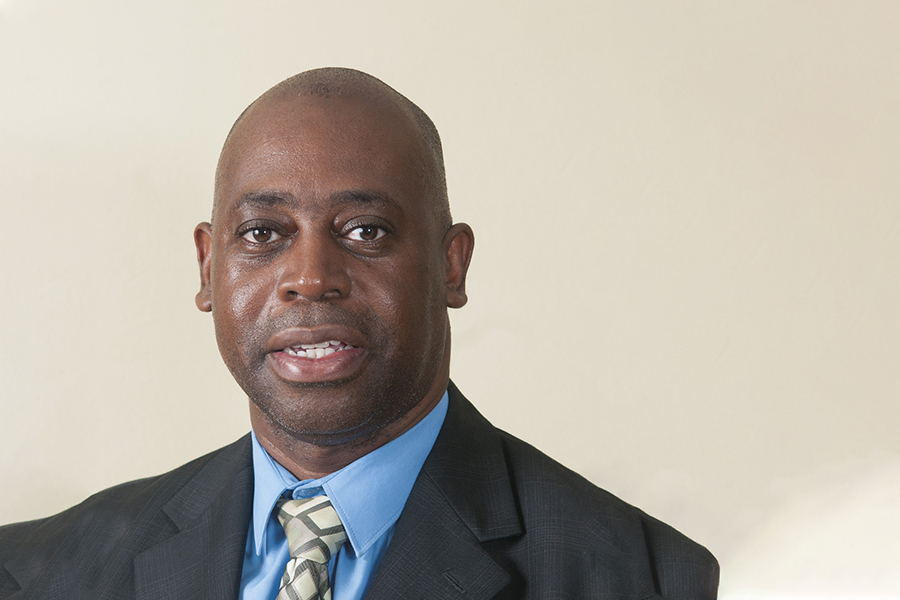
The Barbados National Oil Company (BNOC) oversees upstream, midstream and downstream operations in Barbados. The country’s leading energy company, BNOC is 75% owned by the government and 25% owned by the National Petroleum Corporation. Over the coming years, BNOC is set to play a major role in the nation’s transition to renewables while also focusing on a new frontier for Barbados – offshore oil & gas development. In this interview, CEO James Browne discusses the company’s move into the offshore and renewables segments, and how both offer great opportunities for German investors
You have a comprehensive portfolio of operations that are critical for the national economy. Can you define key milestones that best define the development of BNOC?
Crude oil production in Barbados is generally accepted to have started in the 1870s, with the investigation of oil seeps in the Scotland Area of St Andrew by hand-dug pits and later with machine-drilled wells. The West Indian Petroleum Company formed in 1896 was the first oil company to operate in Barbados and by the year 1910, they had dug more than 60 wells and had produced in excess of 25,000 barrels of oil. Five other oil companies operated in Barbados between 1910 and the 1940s. The last of these was General Crude Oil Co Ltd. which drilled the “discovery well” in Woodbourne in 1966. In 1979 Mobil Exploration Inc. took over General Crude Oil worldwide and continued operations in Barbados until 1982, when they gave the Government notice of their intention to close their exploration and production activities in Barbados. The Government, partly influenced by the high oil prices obtaining at the time, purchased the assets of Mobil Exploration Inc. and incorporated Barbados National Oil Co. Ltd in February 1983, primarily to continue the local crude oil and natural gas production effort. Back in the early 2000s, BNOC financed a subsidiary to take over the terminal operations from the majors, and we were able to reduce the overall cost of bringing fuel into the country. Right now, BNOC brings in oil, fuel oil, diesel, gasoline, jet fuel, and fuel for utilities.
The Ministry of Energy has announced that BNOC would be merged and rebranded. Can you tell us more about this plan?
The final stage has to be approved by the government of Barbados. Right now, BNOC, the NPC and BNTCL have been transitioning from strictly fuel-related operations to add renewable energies, such as solar, wind and biogas. We have a couple of projects that we have already started and our intention is to assist the government of Barbados in transitioning the country from fossil fuels to renewables. We are levering revenues from the fossil fuel market to invest in the renewable energy market. Since we are trying to transition, the three entities are working together and trying to merge the different cultures of the groups.
BNOC is now focusing on renewable energies to help reach the government’s renewable energy goal for 2030. But you are also continuing to search for other natural resources. Can you explain how you will manage this balance?
Our goal is to produce at least 25 percent of the country’s energy needs from local resources, including oil and gas, and eventually reach 100% green energy generation by 2030. We have to continue exploration onshore, but the plan is to develop more offshore. There has been an offshore discovery south of the border between Barbados and Trinidad and in the event more is discovered, which we anticipate to happen by 2025, we want to be there to make sure that we maximize any returns from this offshore oil.
Besides shipping services, you also offer a variety of midstream services that German energy investors may be interested in. Can you tell us more about the opportunities for German investors in BNOC’s portfolio?
Let me speak about an area in which German companies are very strong. As 2030 approaches, we will be transitioning towards 100% renewables, in areas such as solar energy and wind energy. Another critical area, which is very strong in Germany, is biofuels. So that is an area we are very focused on and something we want to do very shortly. Storage is also important. In terms of oil and gas, offshore is a new frontier for us and we would like to bring in whatever technologies are necessary – such as platform engineering, platform design, geophysicists, geologists, and so forth. This is a billion-dollar industry so there will be significant opportunities for any investors that approach the government of Barbados.
The new direct flights from Frankfurt to Barbados promise a wave of new German business visitors. How does Barbados facilitate those who may be interested in investment in the energy sector?
We have a very transparent and competitive framework regarding procurement. The platform is quite level so companies should be able to just come in and bid – with best technologies, best prices and so forth – and have a fair opportunity. We’re accustomed to working with international companies and because of that, I think the framework will be conducive for any business to come in and work with us.